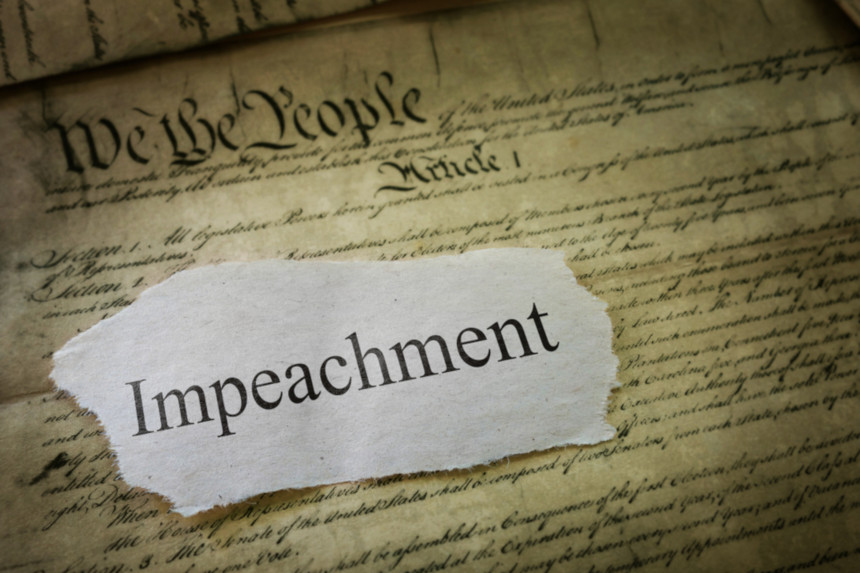Throughout our nation’s history, the House of Representatives has begun impeachment inquiries over 60 times. You would think that, by now, the process would be better organized. But many of the steps can take unexpected turns.
As Congress moves ahead on the current impeachment inquiry of President Trump, the path becomes more hazy the farther we peer into the future. Here is a quick overview of where things might go from here.
The House of Representatives
We Do Know
- The House Committee on the Judiciary is holding hearings on the resolution to impeach the president. (The Committee oversees the administration of justice through federal courts and agencies.)
- If the impeachment hearings proceed at the pace as Clinton’s and Nixon’s investigations, according to Time magazine, they will be over by March 23.
- When the committee, which is made up of 24 Democrats and 17 Republicans, concludes its hearings, it will vote on impeachment. If approved by a simple majority of members, the inquiry will pass to a full House vote. If not, the matter will be dropped.
- In the House, it will be voted on by the entire assembly. If passed by a simple majority of 435 members, it will move on to the Senate.
We Don’t Know
- What the articles of impeachment will be. If there is more than one article, Judiciary Committee members will vote on each article separately. We don’t know which article(s) will be approved for full House consideration. (When the House investigated President Nixon, it drew up three articles. Nixon resigned between the Judiciary Committee’s vote for impeachment and the House vote.)
- How the House will vote. Most members of House majority, which consists of 235 Democrats, are in favor of the inquiry. But voting for impeachment itself is another matter. Of the 60 inquiries begun in the House, only a third have resulted in impeachment (15 federal judges, a cabinet secretary, a senator, and two presidents.)
The Senate
We Do Know
- If it acts on the House vote, the Senate will become the High Court of Impeachment, presided over by the Chief Justice of the Supreme Court John Roberts.
- House members, called Managers, usually from the Judiciary Committee, will appear before the Senate to act as the prosecution, presenting testimony and evidence to support conviction.
- The president will probably not be present, but will be represented by counsel.
- Once the Managers have presented their case, the Senate will vote. If at least two thirds of the senators (67) vote for conviction, the president will be removed from office.
- There will be no subsequent trials based on the Congressional charges.
- The president cannot issue a pardon for himself in the case. Nor can he appeal his conviction to the Supreme Court.
We Don’t Know
- Which way the Senate will vote. The president’s party now holds the majority. If all 45 Democrats voted in favor of conviction, it would still require 20 additional senators (Republican or Independent) to vote with them for the president to be convicted. Party loyalty has, up to now, been strong, but Republicans have voted with Democrats before on these matters. In 1998, 28 Republicans voted against the perjury charge against President Clinton, and 81 voted against the abuse of power charge.
- If the Senate will hold a trial at all. Majority Leader Mitch McConnell said, “I would have no choice but to take it up, based on a Senate rule on impeachment.” However, as Prof. Bob Bauer, a former counsel to President Obama has written, the Constitution gives the Senate to sole right to try the president but doesn’t require it to carry out this function. “Senate leadership can seek to have the rules ‘reinterpreted’ at any time,” writes Bauer. “Senate leadership can seek to have the rules “reinterpreted’ at any time by the device of seeking a ruling of the chair on the question, and avoiding a formal revision of the rule that would require supermajority (67%) approval.”
- How the Senate will conduct the trial. It can give the Managers too little time to present their case. Or it can adjourn for more than three days, which would terminate the trial. But a Senate resolution to adjourn would require a concurrent resolution by the House, which probably wouldn’t want the trial halted.
- How the actions of the president will be interpreted. The Constitution allows Congress to remove the president if he has committed “treason, bribery, or other high crimes and misdemeanors.” However, the authors of the Constitution didn’t specify what those crimes and misdemeanors might be. The Senate’s own guide to the impeachment process says the question is far from settled. The lawmakers’ interpretation, it says, falls between “those who view impeachment as a response to an official’s perceived violation of the public trust against those who regard impeachment as being limited to indictable offenses.”
Featured image: Shutterstock
Become a Saturday Evening Post member and enjoy unlimited access. Subscribe now



